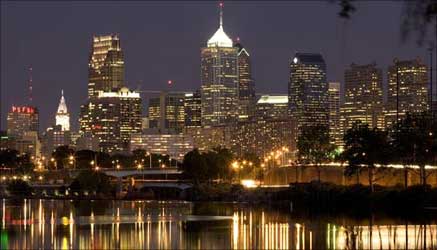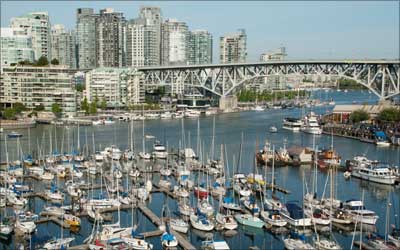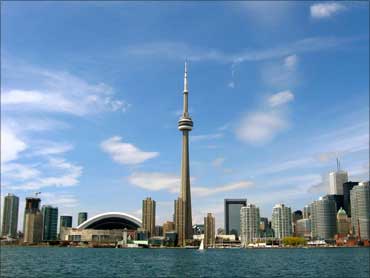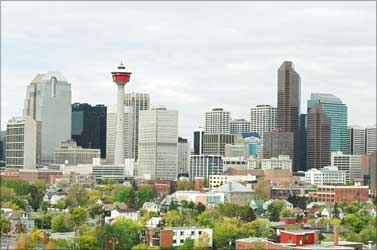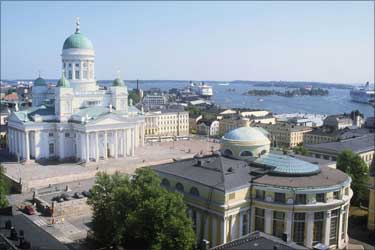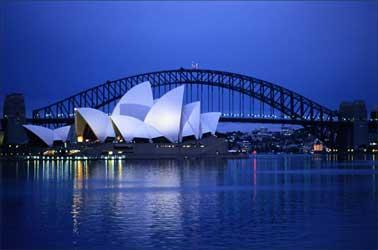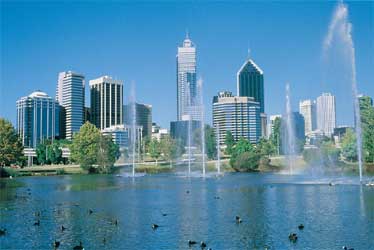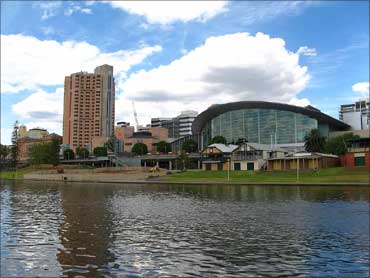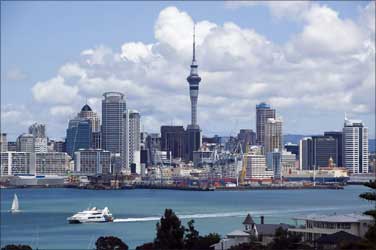 | « Back to article | Print this article |
The world's 10 most liveable cities
The Economist Intelligence Unit, recently, announced its list of the World's Most Livable Cities.
It ranked 140 cites from around the world based on 30 indicators from five broad categories:
- Stability
- Healthcare
- Culture and environment
- Education
- Infrastructure
While cities from Canada and Australia hogged the limelight, there was not a single city from either the US or Asia among the top 10.
While Harare, Zimbabwe scored the least, Dhaka, Karachi and Colombo were among the 10 least livable cities in the world.
So which are the most livable cities in the world?
Click NEXT to read on . . .
The world's 10 most liveable cities
Rank 1: Vancouver
Vancouver is a coastal city located in the Lower Mainland of British Columbia, Canada.
It is named after British Captain George Vancouver, who explored and first mapped the area in the 1790s.
Vancouver is the fourth most densely populated city with a population above 500,000 in North America, after New York City, San Francisco, and Mexico City.
Its compact urban core has gained international recognition for its "high amenity and 'liveable' development."
Click NEXT to read on . . .
The world's 10 most liveable cities
Rank 2: Melbourne
Melbourne is the capital and most populous city in the state of Victoria, and the second most populous city in Australia.
Melbourne was officially declared a city by Queen Victoria in 1847.
The metropolis is also home to the world's largest tram network.
Since 1997, Melbourne has maintained significant population and employment growth. There has been substantial international investment in the city's industries and property market.
Melbourne survived the financial crisis of 2007-2010 better than any other Australian city.
Click NEXT to read on . . .
The world's 10 most liveable cities
Rank 3: Vienna
Vienna is the capital of the Republic of Austria and one of the nine states of Austria.
Vienna is Austria's primary city, with a population of about 1.7 million, and is by far the largest city in the country, as well as its cultural, economic, and political centre.
It is the 10th-largest city by population in the European Union.
Click NEXT to read on . . .
The world's 10 most liveable cities
Rank 4: Toronto
Toronto is the provincial capital of Ontario and the largest city in Canada.
Canada's economic capital, Toronto's leading economic sectors include finance, business services, telecommunications, aerospace, transportation, media, arts, film, television production, publishing, software production, medical research, education, tourism, engineering/construction, and sports industries.
The city is also a major centre of higher education and research, home to many colleges and universities, including the University of Toronto, consistently ranked as one of the top universities in the world and highest-ranked in Canada.
The Toronto Stock Exchange, the world's seventh largest in terms of market value, is headquartered in the city.
Click NEXT to read on . . .
The world's 10 most liveable cities
Rank 5: Calgary
Calgary is the largest city in the Province of Alberta, Canada.
Calgary is a destination for winter sports and ecotourism with a number of major mountain resorts near the city and metropolitan area.
Economic activity in Calgary is mostly centred on the petroleum industry.
Agriculture, tourism and high-tech industries also contribute to the city's economic growth.
In 1988, Calgary became the first Canadian city to host the Olympic Winter Games.
Click NEXT to read on . . .
The world's 10 most liveable cities
Rank 6: Helsinki
Helsinki is the capital and largest city in Finland.
It is Finland's major political, educational, financial, cultural and research centre.
Approximately 70 per cent of foreign companies operating in Finland have settled in the Helsinki region.
In 2009, Helsinki was chosen to be the World Design Capital.
Click NEXT to read on . . .
The world's 10 most liveable cities
Rank 7: Sydney
Sydney is the largest and most populous city in Australia and the state capital of New South Wales.
The site of the first British colony in Australia, Sydney was established in 1788 at Sydney Cove by Arthur Phillip, commodore of the First Fleet as a penal colony.
The city is built on hills surrounding Port Jackson which is commonly known as Sydney Harbour, where the iconic Sydney Opera House and the Harbour Bridge are featured prominently.
Sydney has a reputation as an international centre for commerce, arts, fashion, culture, entertainment, music, education and tourism.
Click NEXT to read on . . .
The world's 10 most liveable cities
Rank 8: Perth
Perth is the capital and largest city of the Australian state of Western Australia and the fourth most populous city in Australia.
The Perth metropolitan area has an estimated population of 1,659,000.
Perth was founded on June 12, 1829 by Captain James Stirling.
Perth became known worldwide as the 'City of Light' when city residents lit their house lights and streetlights as American astronaut John Glenn passed overhead while orbiting the earth on Friendship 7 in 1962.
Click NEXT to read on . . .
The world's 10 most liveable cities
Also ranked 8th: Adelaide
Adelaide is the capital and most populous city of the Australian state of South Australia, and is the fifth-largest city in Australia.
Named in honour of Queen Adelaide, the German-born consort of King William IV, the city was founded in 1836 as the planned capital for a freely settled British province in Australia.
Adelaide is noted for its many festivals and sporting events, its food, wine and culture, its long beachfronts, and its large defence and manufacturing sectors.
Click NEXT to read on . . .
The world's 10 most liveable cities
Rank 10: Auckland
The Auckland metropolitan area, in the North Island of New Zealand, is the largest and most populous urban area in the country with a population of over 1.4 million residents.
The proportion of Asians and other Non-European immigrants has increased during the last decades due to immigration, and the removal of restrictions directly or indirectly based on race.
